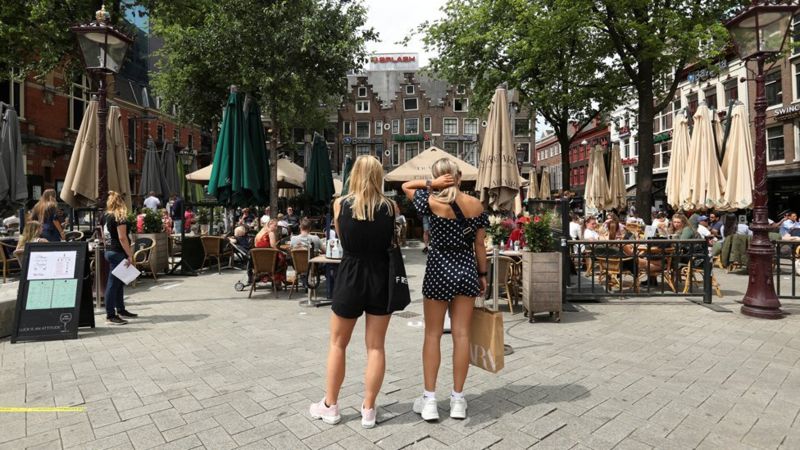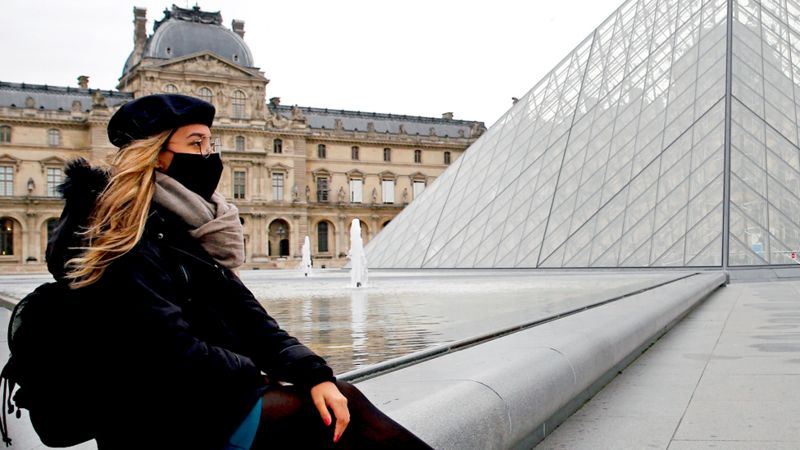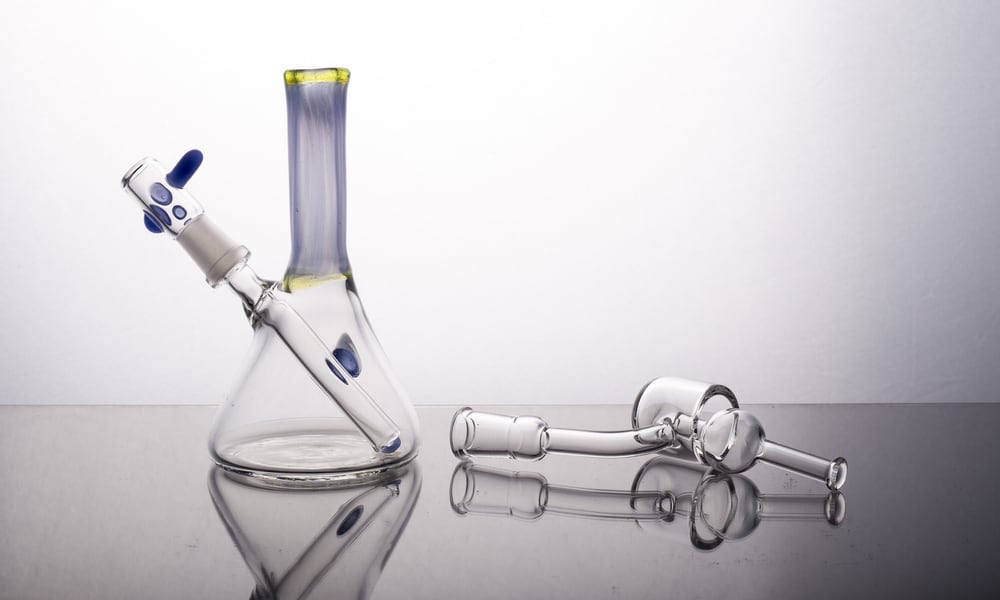France: Second national lockdown
France entered a new national lockdown on Friday 30 October.
People are allowed to leave their home only to go to work (if they cannot work from home), to buy essential goods, seek medical help or to exercise for one hour a day.
Everyone found outside has to carry a written statement justifying their journey, as happened in the first lockdown in March.
All non-essential shops, restaurants and bars are shut, but schools and creches will remain open.
Social gatherings are banned.
The rules will be in place until at least 1 December.
Germany: Partial lockdown in November
From 2 November, new restrictions across the country will include closures of cinemas, theatres, gyms, pools and saunas, as well as restaurants and bars, except for takeaway.
Social contacts will be limited to two households with a maximum of 10 people. Large events are cancelled and there will be no crowds at sports fixtures.
Overnight stays in hotels for leisure purposes will be banned and all non-essential travel strongly discouraged.
However, schools and creches will stay open and visits to nursing homes will be allowed.
Shops and hairdressers will be able to stay open, with strict hygiene rules and limits on the number of customers. Church services and protests will also be permitted.
The measures will stay in place until 30 November.
Spain: New state of emergency
On Sunday, 25 October, Spain began its nationwide curfew, after the government declared a new state of emergency.
People in all regions, with the exception of Canary Islands, will have to stay at home between 23:00 and 06:00.
The only permitted journeys are going to work, buying medicine or caring for elderly or young.
Public and private gatherings are limited to six people who do not live together.
The measures were initially put in force for 15 days but Prime Minister Pedro Sánchez said he would ask parliament to extend them for six months.
Spain’s regional leaders can modify the start and end times of the curfew in their territory by an hour.
They can also close regional borders to travel.
The nationwide measures follow a number of regional measures introduced earlier in October.
Face masks have to be worn by anyone over the age of six on all forms of public transport and in indoor public spaces across the country.
Most regions in Spain have made masks obligatory outdoors as well.
Belgium: Curfew and closures of shops and restaurants
Current new measures include a 22:00 curfew and the closure of all shops by 20:00.
People are being asked to wear masks again at all times in all locations outside home and work (if social distancing is possible).
Gyms, pools and other cultural and leisure facilities are closed.
A week earlier, all bars and restaurants across the country were ordered to close for four weeks and a ban on selling alcohol after 20:00 was imposed.
Restaurants can open for takeaways until 22:00. The government has promised a package of support for all affected businesses.
Households can invite up to four guests, always the same ones, changing every two weeks, and working from home is mandatory, where possible.
Christmas markets, winter villages, second-hand markets and public events such as festivals are not allowed.
Football fans, as well as other sport spectators, are no longer allowed to attend fixtures.






